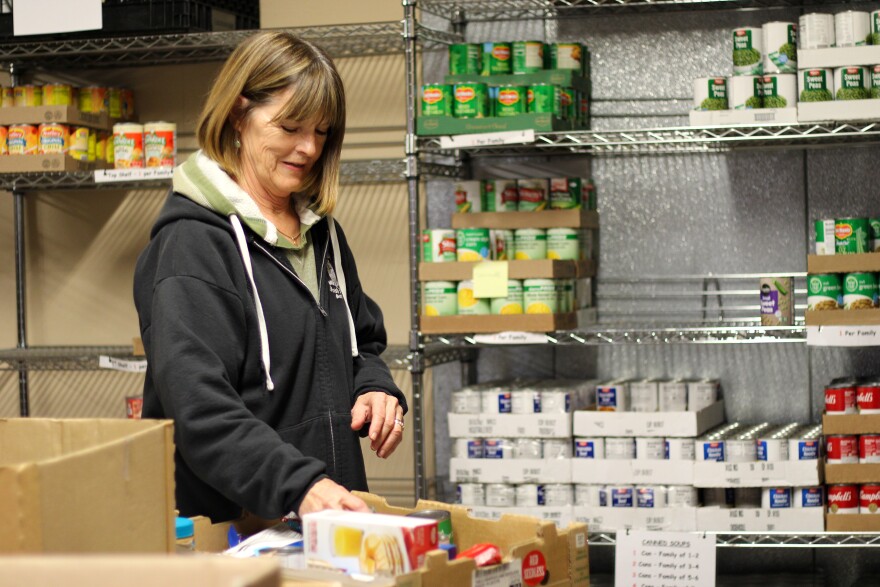CHEWELAH — Polly Davidson, volunteer and board president of the Chewelah Food Bank, recalled that not too long ago, a young woman was sitting outside the food pantry in tears.
Davidson said the young woman told one of the volunteers she felt bad for depending on the food bank – something she hadn't needed to do before.
“Our volunteer said, ‘This is what we are here for; to help people,’” she said.
But after last month’s increase in numbers caused them to run out of supplies, the food bank is now worried about a shortage of commodities, knowing the federal government won’t fund SNAP benefits next month.
According to the Washington State Department of Social and Health Services, nearly 2,000 people in Ferry County, more than 3,500 in Pend Oreille County and over 10,000 in Stevens County rely on SNAP to buy food.
In September, Davidson said they served 215 individuals and 97 families. The average family they serve includes four to six people, with the largest being 14, she said.
“We have quite a few families of six, but the kids need to eat,” Davidson said. “We need to feed the kids.”
Colleen Antoine, assistant manager of the food bank, said they get their food supply from organizations such as Rural Resources, a nonprofit that provides resources and support across northeastern Washington, and NEW Hunger Coalition, which distributes food to 18 pantries across Ferry, Stevens and Pend Oreille counties.
Although Antoine expects the food bank will get by through November and December, she said some items are already running low and could become scarce if more families come in.
Right now, cereal, bread, milk and juice are among the items most likely to run out.
“We’re trying to be optimistic, because this is scary,” Antoine said.
Stephani Smith, executive director of NEW Hunger Coalition, said the nonprofit already has distributed 80,000 pounds of food this year, nearly 20,000 pounds more than last year.
Some of the food pantries they distribute to include the Chewelah Food Bank, Northport Food Bank and the Curlew Community Food Pantry.
“Loon Lake Food Pantry is the busiest food pantry we have,” Smith said.
Smith said that knowing demand will continue to rise, the nonprofit is brainstorming with Providence on organizing a food drive from November through January to help aid rural communities in northeastern Washington.
Smith said Donna Canright, who's president of the Providence Mount Carmel Employee Association, is leading the effort.
The goal is to get 1,000 pounds donated each of those months and then hoping the rest of the community will match the amount.
They plan to place a donation box at Providence Mount Carmel Hospital.
“We will use our distribution system to box and distribute it out to the 18 rural food pantries in our three counties,” Smith said.
Smith said items like cooking oil, canned foods, spices and shelf-stable milk make especially helpful donations for people who want to support their local food banks.


